By YTC Ventures | Technocrat’ Magazine
October 7, 2025 – Patna, BiharIn the sweltering heat of Bihar’s heartland, where the Ganges whispers tales of resilience and the fields of Magadh echo with the cries of the dispossessed, the 2025 Legislative Assembly elections are not just a ballot battle. They are a reckoning. The Election Commission of India (ECI) has unveiled the poll schedule—voting on November 6 and 11, with results on November 14—the state stands at a crossroads.
This is no ordinary election; it is the crucible where Bihar’s 7.42 crore voters, including 3.5 crore women and 14 lakh first-time voters, will decide if the old guard’s promises of “vikas” (development) can finally deliver dignity, or if a tidal wave of young blood will wash away decades of corruption, casteism, and complacency.Bihar, once the cradle of empires, has been shackled by systemic failures. Youth migrate in droves—over 75 lakh souls scattered across India, chasing jobs that should be theirs at home.
Corruption festers like an open wound, siphoning billions meant for roads, schools, and hospitals. Health systems crumble under the weight of neglect, water sources poison the vulnerable, and jobs remain a mirage for the 36% Extremely Backward Classes (EBCs) and 19% Scheduled Castes who form the state’s backbone. But 2025 is different. It demands a new mindset: not the tired arithmetic of alliances, but the algebra of human needs—food on every plate, water in every home, roads that connect dreams to reality, jobs that honor labor, and health that heals without breaking the spirit.This election is Bihar’s clarion call to India.
Do we cling to the fossils of yesteryear, or embrace the fire of tomorrow?
The mandate is clear—human life standards as the yardstick of progress. And in this forge, young leaders under 55 emerge not as footnotes, but as architects of a Viksit Bihar, a Viksit Bharat.
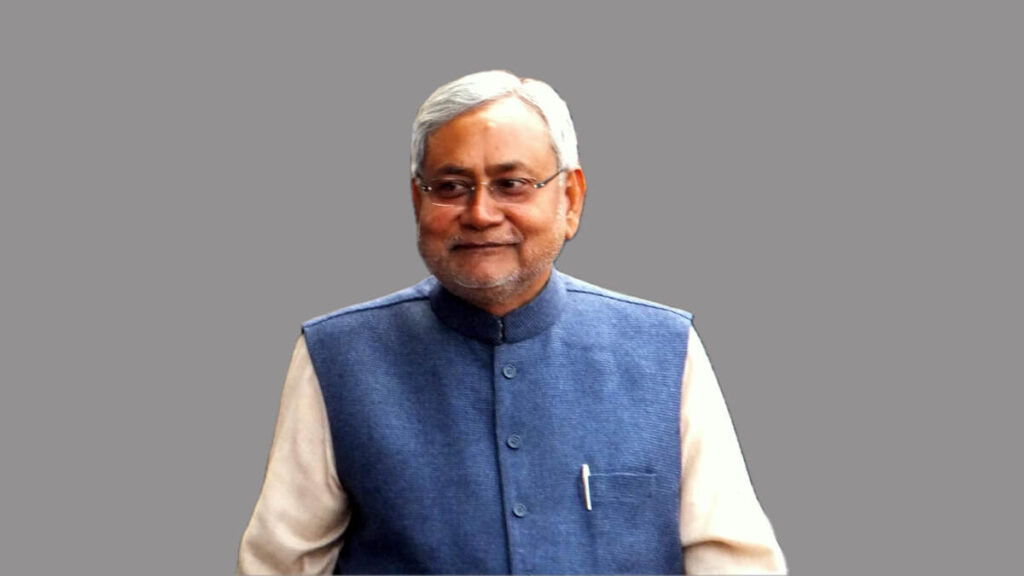
The Electoral Battlefield: Dates, Seats, and the People’s Verdict
The ECI’s announcement on October 6 marks the formal start of the frenzy. Polling in two phases ensures accessibility post-Chhath Puja, a nod to Bihar’s cultural pulse, with 100% webcasting at booths and enhanced EVMs featuring candidate photos for transparency.
Counting on November 14 will crown the 243-seat assembly’s new guardians.
Bihar’s unicameral legislature, reduced from 331 seats post-Jharkhand bifurcation in 2000, remains a powder keg of 243 constituencies, where a simple majority of 122 seats unlocks power.
| Constituency Type | Number of Seats |
|---|---|
| General | 130 |
| Scheduled Caste (SC) | 38 |
| Scheduled Tribe (ST) | 2 |
| Total | 243 |
These seats aren’t mere numbers; they are lifelines.
From the flood-ravaged banks of the Kosi in the north to the drought-scarred plains of the south, each constituency votes not for symbols, but survival.
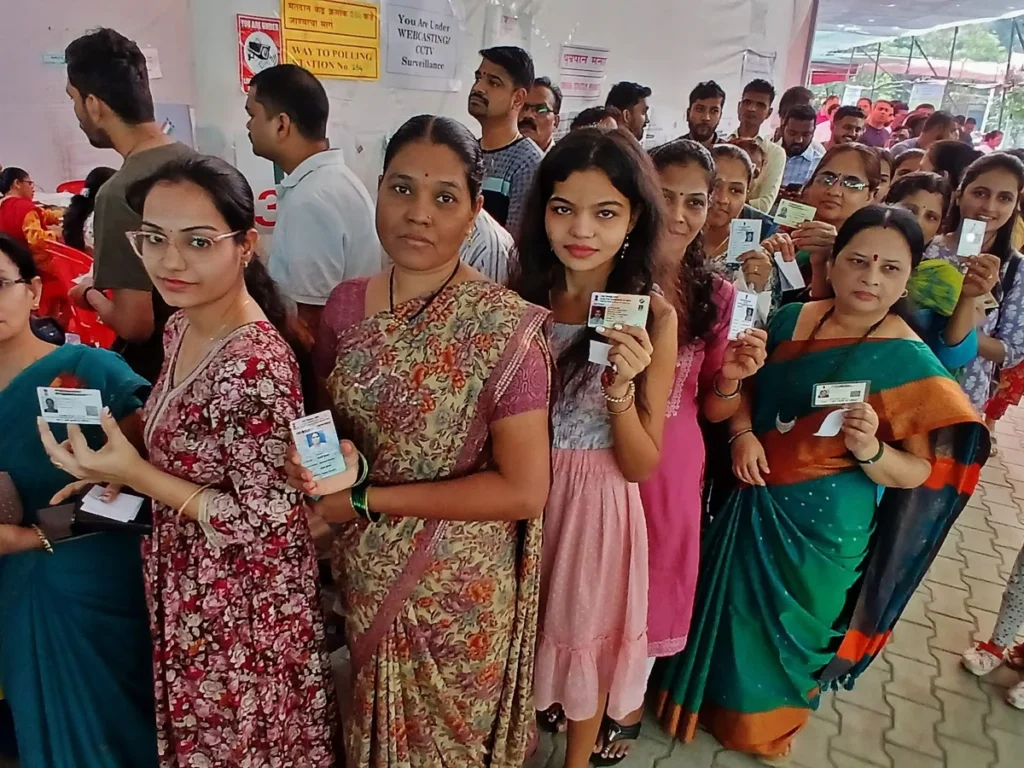
The Titans and the Challengers: Parties in the Arena
The fray is a three-cornered storm. The National Democratic Alliance (NDA)—led by Nitish Kumar’s Janata Dal (United) [JD(U)] and the Bharatiya Janata Party (BJP)—clings to incumbency, touting welfare schemes like free electricity and women’s aid. The INDIA bloc, anchored by Lalu Prasad Yadav’s Rashtriya Janata Dal (RJD) and Congress, rallies on social justice and youth jobs. And crashing the party is Prashant Kishor’s Jan Suraaj Party (JSP), contesting all 243 seats as a disruptor, armed with data-driven critiques of the status quo.Major contenders:
- NDA (JD(U)-BJP-HAM-LJP(RV)): Incumbents with 125 seats in 2020; focus on governance continuity.
- INDIA (RJD-Congress-Left): 110 seats in 2020; youth magnet via Tejashwi Yadav.
- Jan Suraaj (JSP): New entrant, eyeing 10-15% vote share through anti-corruption yatras.
- Others (AIMIM, BSP): Niche players in Seemanchal and Dalit belts.
| Party/Alliance | Leader(s) | Key Strongholds | 2020 Seats (for reference) |
|---|---|---|---|
| NDA (BJP-JD(U)) | Nitish Kumar, Samrat Choudhary | Upper castes, non-Yadav OBCs | 125 |
| INDIA (RJD-Congress) | Tejashwi Yadav, Rahul Gandhi | MY (Muslim-Yadav), EBCs | 110 |
| Jan Suraaj | Prashant Kishor | Youth, urban migrants | 0 (debut) |
| AIMIM | Asaduddin Owaisi | Seemanchal Muslims | 5 |
At the helm sits Nitish Kumar, Bihar’s nine-time Chief Minister since 2000, whose “Sushasan” (good governance) has electrified villages but faltered on jobs. His toughest foe? Tejashwi Yadav (35), the RJD scion whose 2020 near-miss (75 seats) and job pledge manifesto electrified youth.
Enter Prashant Kishor (48), the strategist who scripted Modi’s 2014 win and Nitish’s 2015 triumph—now a wildcard, his JSP yatra covering 5,000 km to expose “the most corrupt regime since Independence.”
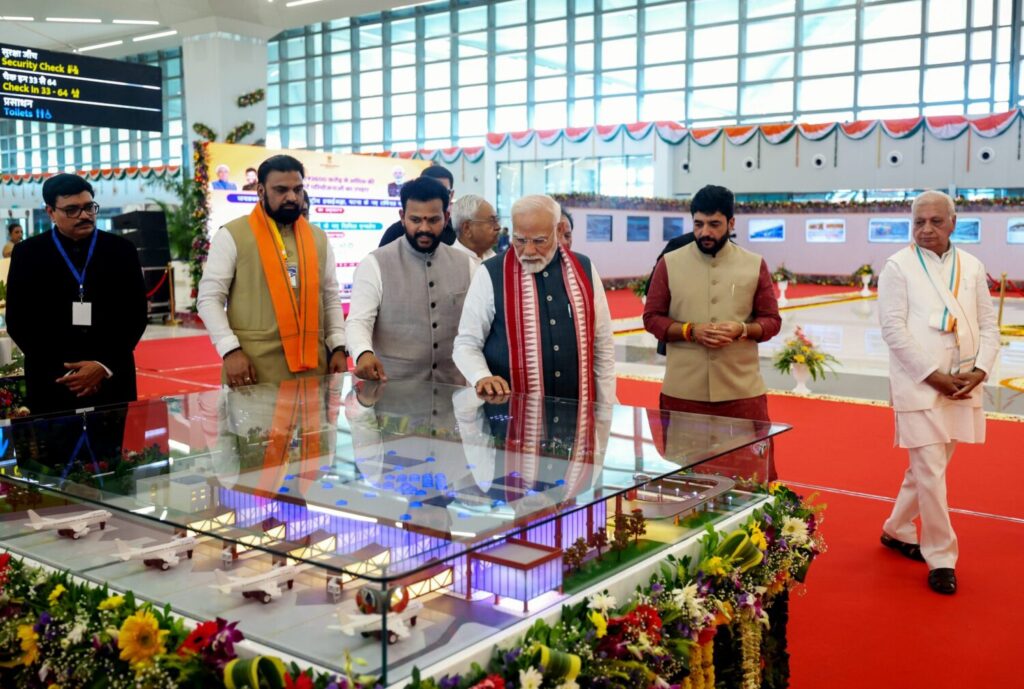
The People’s Army: 7.42 Crore Voices Demand Normalcy
Bihar’s electorate swells to 7.42 crore—3.92 crore men, 3.5 crore women, 4 lakh seniors, and 14,000 centenarians—up from 7.24 crore post-Special Intensive Revision (SIR), despite 65 lakh deletions for migration/deaths.
This is democracy’s motherlode: the 11th largest “nation” of voters if Bihar were sovereign. Women, outvoting men in 2024 Lok Sabha (59.45% turnout), hold the swing; their demands? Safety, sanitation, and schemes that stick.
The Mandate: Beyond Caste – Food, Water, Roads, Jobs, Health
Caste census calls and social justice dominate headlines, but 2025’s true mandate is human-centric: achieving “normal” life standards in a state where 36% EBCs and 27% OBCs scrape by. Unemployment drives 75 lakh migrants; manifestos promise 10 lakh jobs annually, but execution lags. Law and order? Crime rates spike, with opposition decrying “jungle raj 2.0.”
- Food: PDS leaks starve the poor; demand for universal coverage.
- Water: Arsenic contamination in 21 districts; Har Ghar Jal falters.
- Roads: Only 40% rural roads paved; migration’s root.
- Jobs: 1 crore youth enter workforce yearly; skill gaps widen.
- Health: IMR at 27/1,000; hospitals understaffed.
This isn’t rhetoric—it’s the UN’s Sustainable Development Goals localized. Parties pledge caste quotas (75% reservation post-2023 survey), but voters want delivery: irrigation for farmers, hostels for migrants, clinics in every block.

The Corruption Shadow: Jan Suraaj’s Bombshell Data
Prashant Kishor’s JSP has lit the fuse with pre-election exposés, branding Nitish’s regime “more corrupt than Lalu’s.” Backed by documents, Kishor alleges ₹200 crore benami lands by JD(U)’s Ashok Choudhary, murder links for BJP’s Samrat Choudhary, and ₹100 crore scams in health contracts. JSP’s yatra unearthed 350+ complaints of graft, from forged certificates to siphoned welfare funds—data submitted to the Governor.
NDA retorts with defamation suits (₹100 crore notice to Kishor), but the stench lingers, eroding trust in a state where 20 years of “zero tolerance” yielded ₹500 crore in unexplained assets for leaders.
| Party/Alliance | Alleged Irregularities (JSP Claims) | Response |
|---|---|---|
| JD(U) (Ashok Choudhary) | ₹200 Cr benami lands via trusts | Defamation notice filed |
| BJP (Samrat Choudhary) | Murder charges, forged docs | “Frivolous accusations” |
| Overall NDA | Health/education scams > Lalu era | “Startup fraud” counter |
| RJD | Dynastic graft (legacy) | “Distraction from jobs” |
The Money Trail: A Table of Shadows
Election spending, capped at ₹40 lakh per candidate, balloons via parties—yet transparency eludes.
ECI’s cash curbs (no third-party bank hauls) and special accounts aim to plug leaks, but 2025 estimates, drawn from 2020 patterns and JSP filings, paint a murky picture. BJP’s war chest, fueled by national coffers, dwarfs others; RJD leverages diaspora funds.
| Party/Alliance | Estimated Spend (₹ Crore) | Key Sources | ECI Scrutiny |
|---|---|---|---|
| NDA (BJP-JD(U)) | 1,500-2,000 | Corporate, central schemes | High (expenditure observers) |
| INDIA (RJD-Congress) | 800-1,200 | Diaspora, union dues | Medium |
| Jan Suraaj | 500-700 | Kishor’s ₹99 Cr donation | Low (self-funded) |
| Others (AIMIM) | 100-200 | Community | Minimal |
India’s Imperative: New Blood Under 55 – The Antidote to Global Storms
Does India need young leaders under 55? Unequivocally, yes. With 65% of its 1.4 billion under 35, the world’s youngest major economy faces “new world alliances” – from US-China tariffs to climate pacts excluding the Global South.
Gerontocracy (49% MPs over 55) stifles innovation; only 11% under 40. PM Modi’s Viksit Bharat Young Leaders Dialogue 2025 vows 1 lakh youth entries, echoing Vivekananda’s call: “Arise, awake!”Tejashwi (35), Kishor (48), Kanhaiya Kumar (41) – these under-55 dynamos embody the shift.
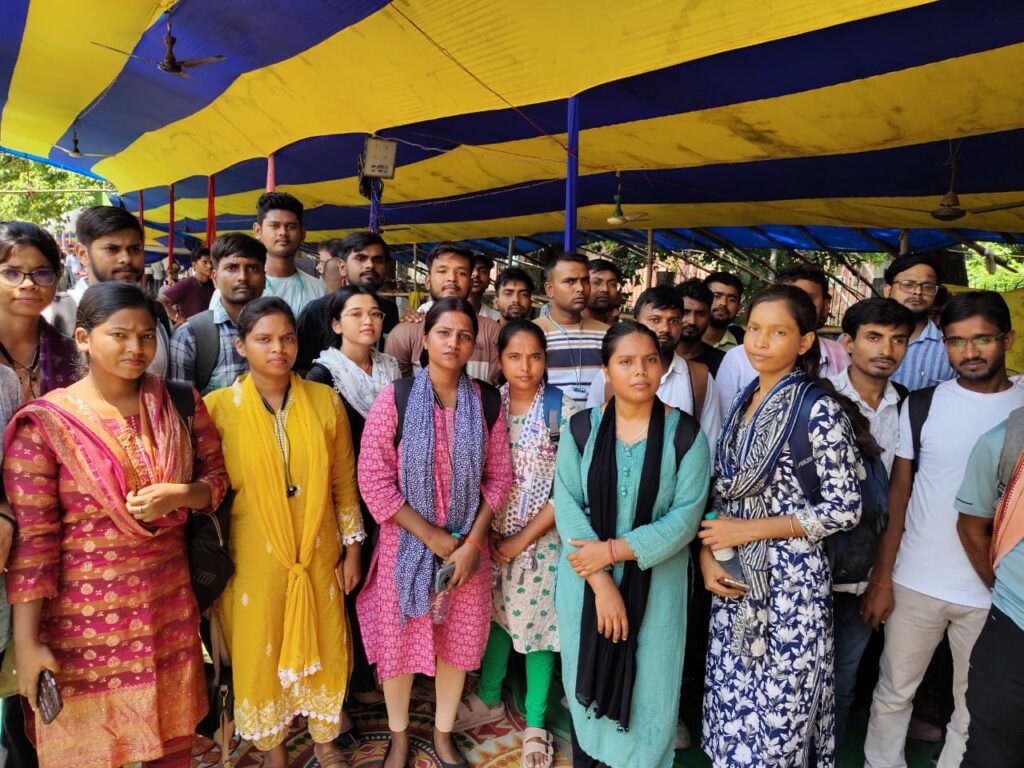
They grasp AI ethics, green jobs, and digital equity, countering alliances like QUAD’s pivot away from India. Old guards recycle caste; youth rewrite equity – from blockchain PDS to solar microgrids. Bihar 2025 could be the spark: a youth-led government delivering 1 crore jobs, universal health via Ayushman 2.0, and roads linking 1 lakh villages.This isn’t upheaval; it’s evolution. India’s new plan: Mandate youth quotas (30% tickets under 55), mentorship via AI-driven academies, and execution tied to SDGs.
The world watches – will Bihar birth leaders who don’t just fight alliances, but forge India’s?
As ballots drop, remember: Politics isn’t inheritance; it’s ignition. Bihar, vote for the dawn. India, follow. The human standard awaits.

Comments